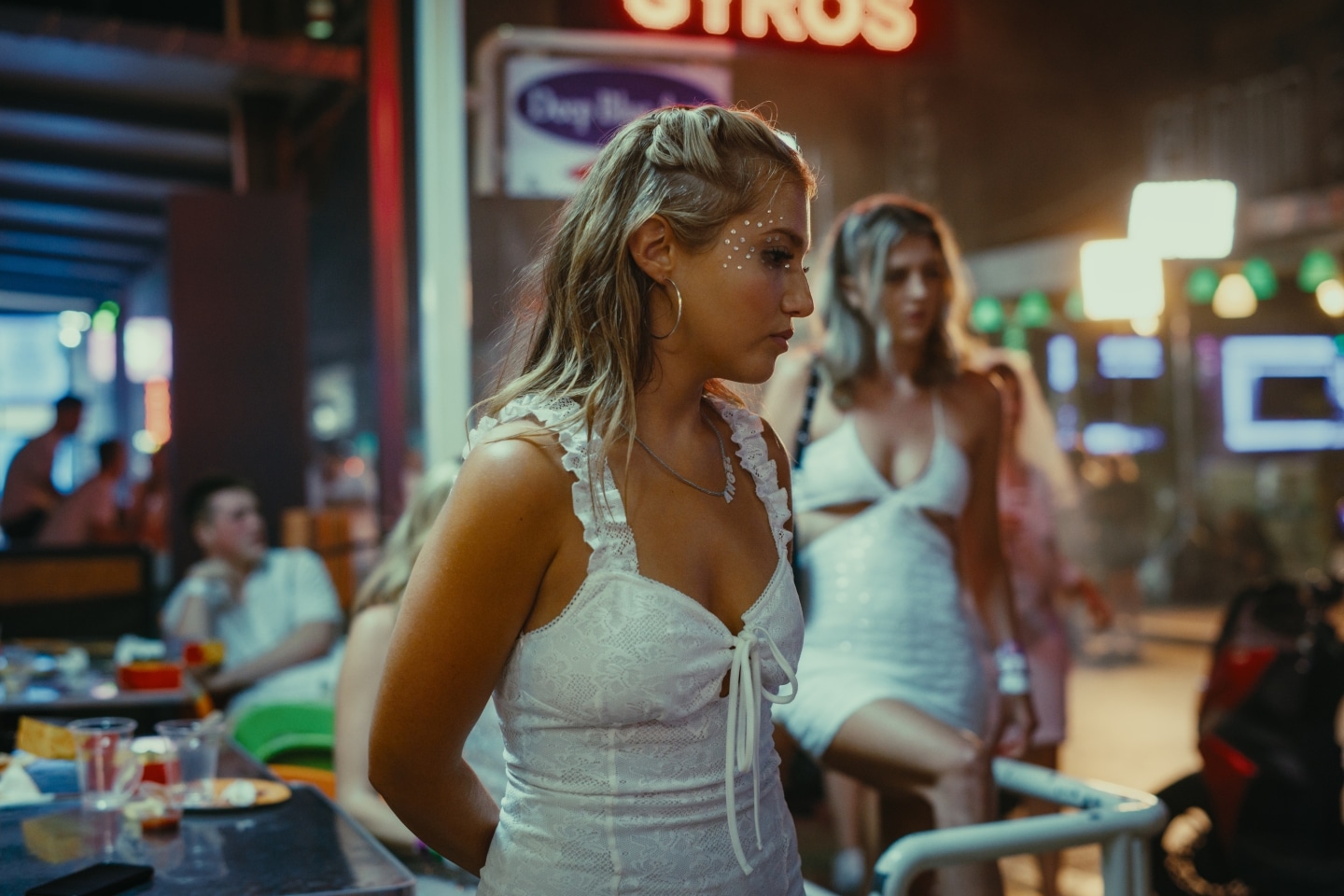There are many sharply observed moments in Molly Manning-Walker’s debut feature.
There is a reality to this film, within the unreal aesthetic landscape of an escapist ‘Brits Abroad’ summer holiday, that achieves a truthfulness in fiction filmmaking sought after so badly by practitioners it renders it on the level of the Holy Grail.
One image in particular stands out long after the credits have rolled. Perhaps it even stands out a little too much, as most of the film flows with free-moving camerawork, woozy close-ups and club scenes in which the permeating darkness is accented by colourful pools of light. This shot, however, is fixed, wide and looks like it was lifted straight out of a western, as the stark whiteness of the morning sun beats down on the Cretan resort’s main street and our hero, Tara (Mia McKenna-Bruce), walks alone in the centre. She’s like an embattled gunslinger, returning for a reckoning, adrift amongst last night’s broken bottles and drunkenly discarded takeaways.
It also resembles the famous final scene in Carol Reed’s The Third Man. There, a woman also walks alone towards the camera, flanked by bare trees that line a wide avenue. A man she knows is waiting for her in the foreground, but when she reaches him she keeps walking, past him, past the camera, out of shot. There’s no kiss-and-make-up here. It’s a moment of liberation.
Yet another moment comes to mind. Louis Malle’s Elevator to the Gallows has Jeanne Moreau, in an emotional performance heightened by Miles Davis’s legendary score, drifting through the streets of 1950s Paris searching for her lover. Illuminated by street lamps and reflected in shop windows, she is a part of the city.
Or remember instead Marilyn Monroe walking away from the camera in glorious Technicolor in Niagara. Directed by Henry Hathaway (best known for his work in the western genre), that scene was called “the longest walk in cinema” and sees Monroe at her most iconic — literally: Andy Warhol used the publicity for the film for his famous print series. But her character is doomed. Her journey is to the place where she’ll meet her end.
Not all ambitious women end up dead for wanting more from life. Tess McGill (Melanie Griffith) in Mike Nichols’ Working Girl, walks with determination amongst fast-paced white-collar Manhattan commuters. She’s often alone and on the move, on the street or in an office, striding towards the lens through vast floors of typists, swapping trainers for high heels when she gets to a desk. Walking around New York is made to appear as arduous as Tess’s tough, obstacle-strewn career progression, in a film that is all about the effort it takes for women to get anywhere in this world.
And so back to How to Have Sex and the idea of freedom in the image of a woman or girl walking in solitude. The night before she appears in that western-inflected shot, Tara is also seen walking, but this time with someone who strides ahead and doesn’t notice her hang back and slip off into the darkness. It’s a moment of relief that brings the message home: sometimes, you’re better off alone.
Rose Baker is pursuing a PhD in Northern Irish television archive, and is the UK/Ireland programmer of the Belfast Film Festival.
This is one of eight essays specifically commissioned for BFF23.
How To Have Sex is screening on Thursday, 2 November 23 – 12pm @ Queen’s Film Theatre. 8.45pm
